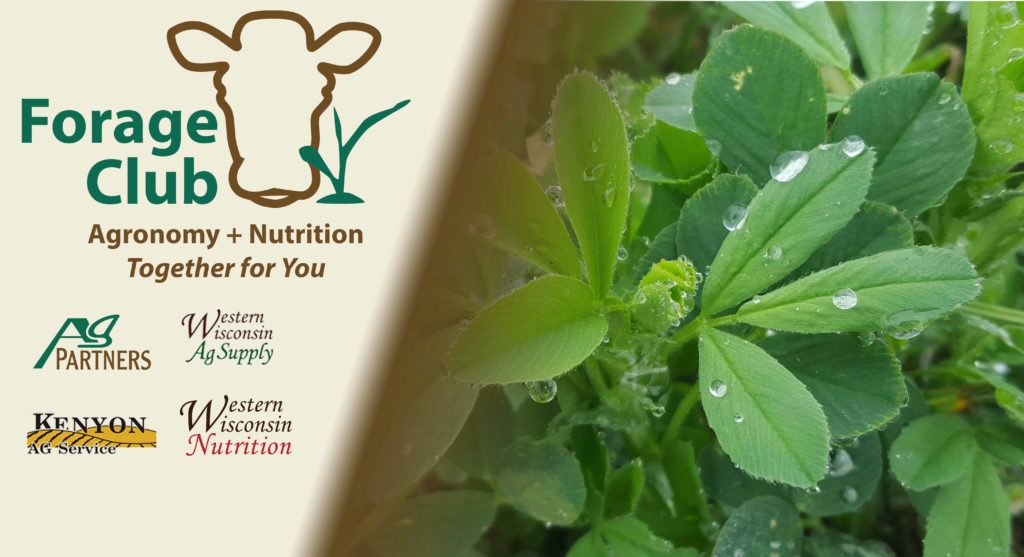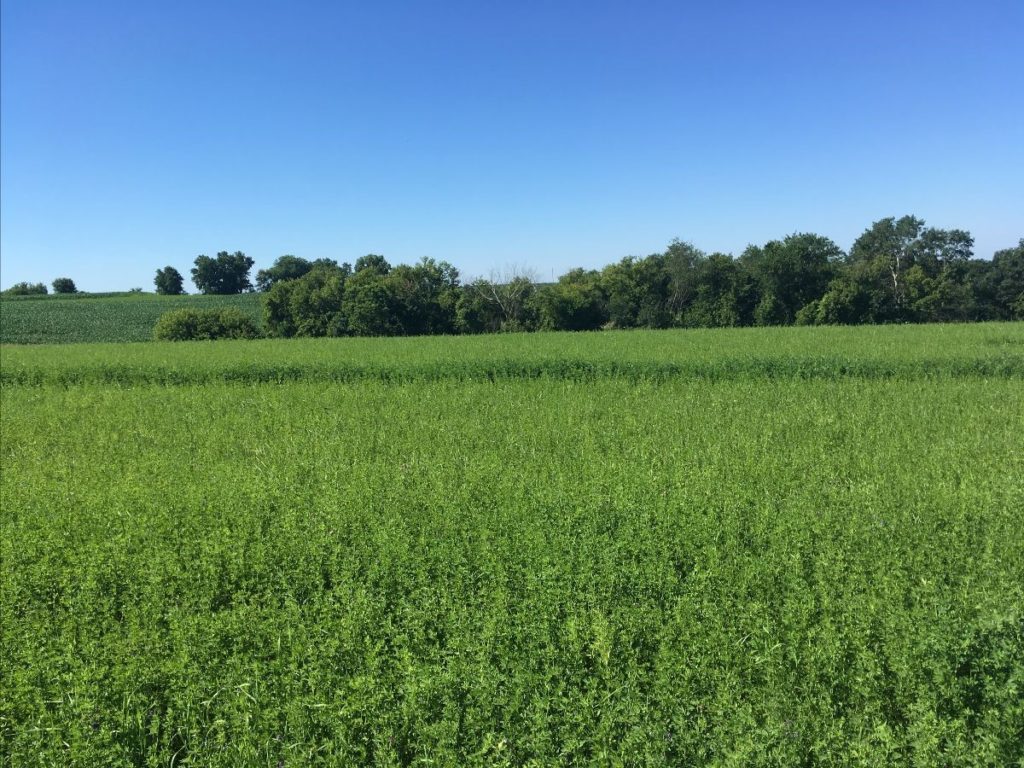
Alfalfa Fertility: Fertilizing to Achieve Tonnage & Quality
This spring has been a hard one for our alfalfa. Multiple severe freezes have depleted carbohydrate reserves in the roots and it is important to keep feeding the plant as we take first crop off next week. Below are some general guidelines that we recommend. A well fed alfalfa crop equals quality feed and enhanced tonnage.
In alfalfa production, the use of commercial fertilizers can often be overlooked because of the reliance on manure in livestock operations. The Forage Club’s general recommendation for alfalfa is 200 lbs. of potash, 100 lbs. of ammonium sulfate, and 10 lbs. of borate (14% boron) applied after 1st cutting. This is then followed by an additional 200 lbs. of potash after the final cutting.
Potassium– For every ton of dry matter harvested per acre, 50 lbs. of potassium are removed from the soil. This means that an average crop of 5 tons per acre removes 250 lbs. of potassium. Our recommendation of 400 lbs. annually is enough to compensate this removal. The application of potash we recommend after the final cutting aids in winter survival. The reason potassium is critical for alfalfa is that it is an important element in nitrogen fixation, and allows for water regulation (drought tolerance), enzyme activation, disease resistance, carbohydrate production and mobility, among others.
Sulfur– Second only to potassium is sulfur. Our recommendation of 100 lbs. of ammonium sulfate provides enough sulfur for a 5-ton crop in a given year. Sulfur is essential for producing a high protein alfalfa because it is the building blocks of the amino acids.
Boron– Although absorbed in trace amounts by the alfalfa plant, boron is an important nutrient to alfalfa. Our recommendation is 10 lbs/ac of borate. Boron’s role in the plant is to aid in cell division, cell formation, as well as aid in reproductive growth. With multiple cuts in a year, boron is responsible in helping with the regrowth of alfalfa.
Pictured above is fertilizer (back) versus no fertilizer (front)
Call your agronomist for assistance with your alfalfa fertilization plan.



